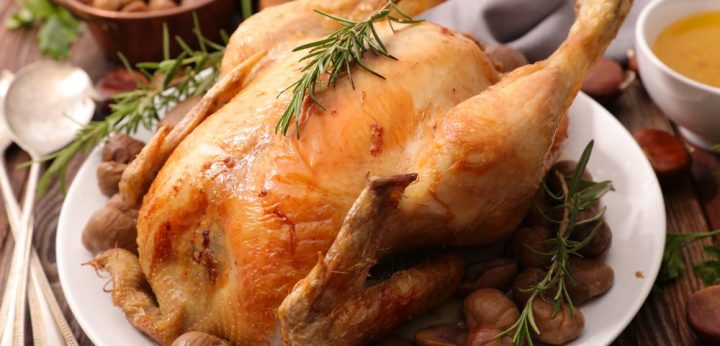How to Manage Neuropathy Symptoms During Thanksgiving

Thanksgiving is a time for friends and family to spend together reflecting on the things they’re grateful for and bonding over the traditional meal. For many, the holiday may involve long-distance travel and hours of preparation for the festivities.
Patients who suffer from familial amyloid polyneuropathy, as well as their caregivers, must be mindful of how the Thanksgiving holiday events may affect peripheral neuropathy symptoms. Here are some tips for patients to manage their neuropathy symptoms during the season.
Thanksgiving travel
For many, the Thanksgiving holiday involves traveling to visit friends and family. Whether the trip is by plane, train, or automobile, patients and caregivers must be aware of the risks each mode of travel presents. When traveling by car and public transportation, crowded vehicles and restrictive seating may affect symptoms of burning, tingling, and numbness.
Caregivers may consider booking train or bus tickets ahead of the Thanksgiving rush and choose off-peak hours when there are fewer people on board. More space around seating will help to protect the patient from inadvertent physical contact with fellow passengers that may irritate areas of the skin susceptible to neuropathy.
For those traveling by airplane, caregivers should follow the same protocol. Aside from the risks associated with being seated for extended periods, air travel can cause swelling in the limbs, leading to additional tingling and burning sensations. Patients might be advised to wear compression socks to alleviate swelling when flying. However, compression socks might be too restrictive for those with sensitive feet that are prone to swelling. Consult your doctor for advice.
Before and during the meal
It can be hectic at my in-laws’ home during Thanksgiving. For my wife’s family, Thanksgiving starts on Wednesday night as my mother-in-law and a conscripted group of relatives prepare the meal in advance. This operation continues bright and early the next morning, as everyone works to have the meal ready by noon. Despite her symptoms, my mother-in-law handles particular aspects of meal preparation and cooking herself.
While some patients can’t fully participate in meal preparations, others may be active in cooking. It is important for patients to feel included if their peripheral symptoms are manageable. Caregivers should stay close by to ensure that patients don’t inadvertently harm themselves with kitchen tools, sharp objects, and hot surfaces.
Once the preparations are over, it is time to enjoy the meal and the company of friends and family. During the meal, caregivers should be mindful of their patients’ diets and the foods that might be harmful to those with high blood sugar. Thanksgiving foods such as pumpkin pie and cranberry sauce can cause blood sugar levels to spike, possibly aggravating existing neuropathy symptoms.
If the patient is part of a local neuropathy support group, you might suggest gathering for a communal Thanksgiving meal. A shared meal is a great way for patients and caregivers to spend time with those who support them over the holidays.
***
Note: FAP News Today is strictly a news and information website about the disease. It does not provide medical advice, diagnosis, or treatment. This content is not intended to be a substitute for professional medical advice, diagnosis, or treatment. Always seek the advice of your physician or other qualified health provider with any questions you may have regarding a medical condition. Never disregard professional medical advice or delay in seeking it because of something you have read on this website. The opinions expressed in this column are not those of FAP News Today or its parent company, Bionews Services, and are intended to spark discussion about issues pertaining to familial amyloid polyneuropathy.







Leave a comment
Fill in the required fields to post. Your email address will not be published.